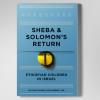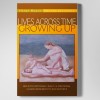Jean Laplanche, a man as careful with words as a surgeon with scalpel, died this week. International Psychoanalysis.net will honor his life and work with three pieces: his 1991 “Is Psychoanalysis Curable” (courtesy of Jimmy Fisher); a classic translated by Jonathan House; and an interview.
In the “Curable,” piece below, Laplanche states that overusing psychoanalytic terms leads to ridicule; further, even in 1991, psychoanalysis was considered passé.
Yet, for Laplanche, psychoanalysis — the method — leads to lucidity and freedom. These are subversive and even revolutionary activities.
Laplanche orients us, gives us our longitude and latitude, our coordinates: psychoanalysis is a method “to investigate otherwise nearly inaccessible mental processes,” per Freud. The two components of that method are free association and transference. Much of the rest, which others write, is commentary (and more of the rest superfluous or senseless as used by society and too many others).
With this method, psychoanalysis liberates thoughts, which then gravitate to points of attraction that are at first unknown to the analysand. This is free association.
Transference ultimately leads us to speak freely with a skilled and receptive listener (and ultimately to oneself).
In the wedding of free association and transference, one produces an offspring: a sense of how this human was constituted through one’s original relationships with significant others. This offspring develops, if things go well, to learn how to relate more deeply, more thoughtfully to oneself and others.
Symptoms, Laplanche reminds us, bring the analysand. But psychoanalysis has a subversive element via free association and transference: via the symptom, we are led to a new version of the self. For, psychoanalysis reveals secret desires.
Erich Fromm wrote that psychoanalysis is a true inner freedom that complements the outer political freedoms, which democratic societies purport to offer.
Laplance, in a radical stance, insists that holding psychoanalytic method accountable to third parties (rather than to the individual alone) violates its own principles: to speak freely, to breathe freely.
Listen now to Laplanche.



